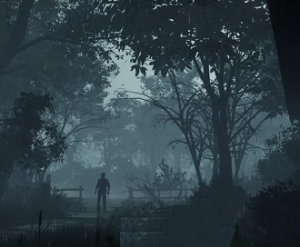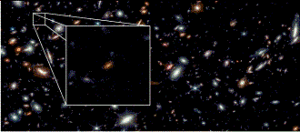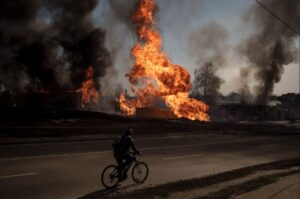
Arquivo para a ‘Tecnology’ Categoria
Disenchantment, narration and pain
Chul Han remembers a very well-known habit in many societies, which is telling children bedtime stories, I remember that it is old because they are famous: Aesop’s fables (ancient Greece), the tales of the Brothers Grimm, the stories organized by Charles Perrault and many others, Han will choose a little-known story (at least here in Brazil) by Paul Maar of young Konrad that he didn’t know how to narrate and his sister Susanne asks him to tell her a bedtime story.
many societies, which is telling children bedtime stories, I remember that it is old because they are famous: Aesop’s fables (ancient Greece), the tales of the Brothers Grimm, the stories organized by Charles Perrault and many others, Han will choose a little-known story (at least here in Brazil) by Paul Maar of young Konrad that he didn’t know how to narrate and his sister Susanne asks him to tell her a bedtime story.
The parents, on the other hand, liked to narrate, they were “almost addicted to it” and when the father finishes telling a story, the mother writes R for Roland on the paper and when the mother finishes telling the story, the father writes an O for Olivia, but the parents realize that Konrad can’t tell stories and send him to a certain Miss Muhse, he arrives at a small house and the lady who knows that he has come to learn how to tell stories asks him to go up a ladder and take a small package to his sister, but the The stairs seem endless until they meet a wall that opens like a door.
Inside it is all dark and he sees an owl with a strange voice and conversations and realizes that there is no floor and falls down a long path, finding Miss Muhse at the end who gives him another package and asks him to take it to her brother downstairs as he did not deliver the first one, Konrad is confused because he thought he had fallen to the ground floor, and he falls again into the “dark spaces” of the house and again Miss Muhse arrives who is now smoking a fine cigar and knows that he didn’t deliver the package and gives him another one again, he says “I’m not here to deliver little packages, I’m here to learn how to narrate”, she sees that she’s a lost cause, opens a door in the wall and says: “Happy sorting and all about bread” (she always changes the sayings) and this time he is back at his parents’ house (pages 74 to 77).
His parents and little sister are having breakfast and he says excitedly: “I have to tell you. You won’t believe what I experienced…”, Konrad’s world is now different and now his parents write K (for Konrad) on the paper they wrote down their narrations.
The disenchantment of the world is when everything is reduced to causality, facticity (today’s narratives say facts don’t lie, but under a partial interpretation), Walter Benjamin says that “children are the last inhabitants of the enchanted world” (pg. 79), I would say there is no more lightness, empathy and imagination in the “adult” world.
“Children today hunt for information like digital Easter eggs” (pg. 80), today the “lack of narrative interiority distinguishes photographs from souvenir images… photographs portray data without internalizing it… they don’t want to say nothing… “ and this is why I conclude that data may not be, and almost always is not, information.
It is even more difficult to understand what knowledge is as an experience: “the narrative is opposed to chronological facticity” (pg. 81), recalls Han reading Marcel Proust and also Benjamin that the aura is precisely the “distance of the gaze that awakens in the observed object ” (pg. 82) and will also remind you of Karl Kraus quoted in Benjamin: “the closer you look at a word, the further away it seems to be” (pg. 83).
The denarrativized memory is like a “junk store” here the author remembers Paul Virilio (Information and Apocalypse) being the “deposit full of all kinds of completely disordered, poorly preserved images and worn out symbols” (pg. 84), where one finds makes “a pile of data or information does not have a story. It is not narrative, but cumulative” (pg. 84).
This chapter ends in a very pleasant and sensitive way, after quoting excerpts from the works of Susan Sontag, Adorno and Gershom Scholem, paraphrasing the latter he writes: “The mythical fire in the forest has been forgotten. We no longer know how to say prayers. We are also not capable of secret meditations” (pg. 89) and I would say taking advantage of the topic Pain from the book “Heidegger’s Heart: on the concept of tonality” (see previous posts) we no longer know the meaning of pain, of affection and we have lost any notion of the “whole”.
Han, B.C. (2023) A crise da narração (The crisis of narration). Transl. Daniel Guilhermino. Brazil: Petrópolis, Vozes.
Narration, digital culture and orality
Still in the section on Poverty and experience, quoting Walter Benjamin, Byung-Chul wrote: “We became poor. We abandoned all the pieces of human heritage one after another, many of them had to pawn a hundredth of their value to receive in exchange the small currency of the ‘current’. The economic crisis is at the door, behind it is a shadow of the next war” (Han, 2023, pg. 37-38, citing Poverty and Experience by Benjamin), it was the threshold of the 2nd. World War.
quoting Walter Benjamin, Byung-Chul wrote: “We became poor. We abandoned all the pieces of human heritage one after another, many of them had to pawn a hundredth of their value to receive in exchange the small currency of the ‘current’. The economic crisis is at the door, behind it is a shadow of the next war” (Han, 2023, pg. 37-38, citing Poverty and Experience by Benjamin), it was the threshold of the 2nd. World War.
In which modernity sums up happiness, the author explains “happiness is not a one-off event (pg. 43), today “when everything throws us into a current frenzy, when we are in the middle of the storm of contingencies, we are unhappy” ( pg. 44), recalls Marcel Proust “In Search of Lost Time” who understood the “rescue of the past as the narrator’s task” (pg. 45) and modern life as “a muscular atrophy”.
Disagreeing with Heidegger to reaffirm its contextual importance (also for today): “Being and time is not a timeless analysis of human existence, but a reflection of the temporal crisis of modernity” (pg. 45), “the being-itself of Heidegger is prior to the narrative context of life produced later. Being-a-i assures itself before telling itself a coherent story regarding the world of interiority” (pg. 47) and this explains the book we previously posted here, Heidegger’s Heart.
After a speech on some pages about new media: Phono sapiens, selfies, Facebook, it is a fixation of the author even though he recognizes Benjamin before this, even though he says correctly: “they are aligned in a syndetic way, without any narrative nexus” (pg. 51), recognizes that “Human memory always makes choices. In this aspect, it differs from a database”, a fundamental technical precision, which some people sometimes confuse with data without information, information without knowledge.
It predates even the emergence of the Gutenberg press and belongs to oral culture: “autobiographical narration presupposes a subsequent reflection on what was experienced, a work of conscious remembrance” (pg. 53) while “the quality of the data is better as they contain less consciousness” (idem), but it is necessary to remember the semantic search, the linking of data (linked data) and the use of Artificial Intelligence for narration that makes possible a consciousness beyond the “libidinal conscious” (idem) without ethics or morals.
Without mentioning oral culture, but the excerpt reminds her: “if everything that was experienced is present without distance, that is, it is available, the memory reappears” (pg. 56) and adds: “a flawless reproduction of the experience does not is a narrative, but a report or record” (ibidem) and remembers that whoever wants to narrate or remember “needs to be able to forget or let a lot of things slip” (pg. 57) and cannot be talking about anything other than the written culture, as oral culture is capable of forgetting details but will always remember what is experienced and through it remember the essentials and remember tradition.
Remembering the masters of cultures, their teachings and experiences is nothing other than oral culture, written culture is a “database”, a memory without reflection.
Han, B.C. (2023) A crise da narração (The crisis of narration). Transl. Daniel Guilhermino. Brazil: Petrópolis, Vozes.
Power in Foucault and Chul-Han
Michel Foucault broke with the classical conceptions of the term power and defined it as a network of relationships where all individuals are involved, and we understand the network here with the modern sense of network, although it was vague in his time, individuals are both generators and recipients of power. movement of these relationships, however he identifies them as biopower, while Chul-Han identifies them as psychopower, and in a way adds the media to this.
conceptions of the term power and defined it as a network of relationships where all individuals are involved, and we understand the network here with the modern sense of network, although it was vague in his time, individuals are both generators and recipients of power. movement of these relationships, however he identifies them as biopower, while Chul-Han identifies them as psychopower, and in a way adds the media to this.
State ideology, born from Hegel, is the basis of every history of contemporary power, authoritarianism and modern wars were born from a new idea of imperialism and colonialism, in which stronger states control power not only through weapons, but rather through biopower and now psychopower.
Foucault’s biopower, the state is the first level of power (he calls it a sector), the market is the second level, and the third is civil society, the idea of 4th. The power of the press comes from there.
He studied power not to develop a theory about it, but to identify aspects of subjectivity (in ontology it would be the question of Being), that is, subject over other subjects.
This is important to differentiate him from Chul-Han, who starts from the ontological relationships between beings and identifies the action of media and media structures that act on the psychology of power, so his idea of power (What is power) is like a domination technique that stabilizes and reproduces the dominated system through programming and psychological control.
Foucault sees biopower, as in the body as a training machine, since biopolitics, in the middle of the 18th century, was focused on regulatory controls on the population, the idea being that it was the population increase that caused misery and hunger.
Peter Sloterdijk, who supervised Chul-Han’s doctoral thesis on Heidegger, argues that this “training” process failed and thus, the control process develops towards the fourth power, which Chul-Han focuses excessively on the media, forgetting the 4th. power of the press, TV and cinema that had an enormous influence.
He develops pathologies of self-centeredness (narcissism), emotional instability (borderline) as responses to the demands of a society intoxicated with demands for efficiency, appearance and disciplinary coercion, wrote the author):
“The violence of decapitation is inherent to the pre-modern society of sovereignty; its medium is blood. Modern disciplinary society is, to a large extent, a society of negativity, being governed and dominated by disciplinary coercion, that is, by ‘social orthopedics’. Its form of violence is deformation. But neither decapitation nor deformation are capable of describing the postmodern performance society. It is dominated by a violence of positivity, which confuses freedom and coercion. Its pathological manifestation is depression” (Han 2018, pp. 183-184).
HAN, Byung-Chul. (2018) Psicopolítica: o neoliberalismo e as novas técnicas de poder. Brazil, Belo Horizonte: Âyiné.
Total war threats
Macron and Putin’s statements scare Europe, although neutrality is not the exact term for involvement due to NATO’s presence in several countries, now Sweden and Finland, bordering Russia.
although neutrality is not the exact term for involvement due to NATO’s presence in several countries, now Sweden and Finland, bordering Russia.
In an interview with the newspaper Le Parisien, published last Saturday (16/03), Macron declared: “Prepare for all possible scenarios” and added “perhaps at some point this will have to be done”, and “everyone will assume their responsibilities “, provoking reactions of different types, some against and others in favor.
In response, Putin said that if any Western country sends troops to Ukraine, a war between Russia and NATO would be inevitable, and threatened to use nuclear weapons “capable of destroying civilization”.
Putin has a highly secret electronic command and control briefcase called “Kazbek”, it is believed that Russian Defense Minister Sergei Shoigu and the Russian Chief of Staff Valery Gerasimov also have these briefcases, they would control more than 4300 nuclear warheads.
Also NATO plans to implement a rotational air defense model in Lithuania are taking shape, according to Lithuanian Defense Minister Arvydas Anušauskas.
Russia’s election with 87% of votes for Putin was criticized in the West, Germany called it “pseudo-elections”, the French newspapers “simulacrum”, finally opponents arrested or killed and a lot of repression against the opposition.
Putin stated that Russia would consider testing a nuclear weapon if the United States did so, in 2023 the Russian president withdrew Russia from the Comprehensive Nuclear Test-Ban Treaty (CTBT), although it is reported that Russia did not carry out any tests , recently tested the Bulava missile (SS-NX-30 in NATO classification) can be equipped with ten nuclear warheads.
The tone has risen, but also the resistance of spirit and hope has not diminished, peace is possible.
The resistance of the spirit of humanity
Victor Serge wrote “Midnight of the Century” in 1939, in the middle of the 2nd. world war, now in an article published in La Reppublica, on 24-01-2024, the French sociologist Edgar Morin published an article: “The resistance of the spirit” about the crisis of current wars.
1939, in the middle of the 2nd. world war, now in an article published in La Reppublica, on 24-01-2024, the French sociologist Edgar Morin published an article: “The resistance of the spirit” about the crisis of current wars.
The war in Ukraine mobilized economic aid from much of the world, while on the Russian side, economically weakened by the sanctions imposed by Western nations, it strengthened both technical-scientific development and the bloc formed with China.
Serge, an anarchist by origin, who supported the Russian Revolution, saw it bureaucratize and persecute all real and imaginary enemies in the Stalinist period, described in “The Great Terror” (1934-38), years before describing the horror to midnight, and whatever you say about today.
A new focus emerged after a massacre of civilians by Hamas on October 7, 2023, followed by deadly Israeli bombings in the Gaza Strip.
In Morin’s analysis, which has been developed for some time, the progress of knowledge occurred by creating barriers in disciplines that are increasingly closed in their object, which leads to a new type of almost blind thinking, linked to the dominance of calculation in a technocratic world, the progress of knowledge does not consider the complexity of reality and becomes blind.
The result of a lack of clarity and understanding of human life exposed by the ease of access to all life on the planet, without its understanding, has led to dogmatism and fanaticism, and a crisis of morals while hatred and idolatries spread.
Recalling the years of Nazi occupation in France (photo Carentan France, June 1944 From the LIFE Magazine Archives), in which Morin himself was a member of the French Resistance, he now evokes a resistance of spirit that avoids almost desperate or truly desperate action, and maintains hope through Resistance.
This resistance implies safeguarding or creating an oasis of communities endowed with a say in relative autonomy (agroecological) and social and solidarity economy networks.
This action also implies associations that are dedicated to solidarity and rejection of hate.
What are things
When rereading Byung Chul-Han’s “Non-Things”, he correctly recalls that the term comes from Vilém Flusser, who lived in Brazil for a good part of his life, and also takes up the concepts of Hanna Arendt and Heidegger, but does not penetrate in the essence of the thing, which is not just information.
he correctly recalls that the term comes from Vilém Flusser, who lived in Brazil for a good part of his life, and also takes up the concepts of Hanna Arendt and Heidegger, but does not penetrate in the essence of the thing, which is not just information.
Medieval philosophers had already developed the question of quiddity, which is neither an idea nor a concept, but something that sought to understand the essence of things, from the Latin, “quidditas” means “what is that” and was related to the idea of identity and uniqueness.
Thus, by transforming it into information, it does what Luhman did with the concept (remember that this author deals more with the issue of communication than the thing in itself), he says, quoted by Byung Chul-Han: “His cosmology is a cosmology not of being, but of contingency”, that is, something that has no essence, no identity or singularity and cannot “be”.
Clarifying that it is a particular way of seeing information, as a “transmitted thing”, and in this the author is right: “Information cannot be possessed as easily as things. Possession determines the paradigm of the thing. The world of information is not governed by possession, but by access” (Han, 2022), this is so true that the Portuguese dictionary in Brazil now has a new word which is “logar”, from the English, log “registration” in the sense of marking access to “information”, in Chul-Han’s sense.
Quoting Jeremy Rifkin, Han warns that the transition from possession to access is a paradigm shift that leads to drastic change in the world of life, subtitle of the book, he predicts a new type of human being: “access, therefore, ‘access’ are key terms of the nascent era (Han, 2022).
Jeremy Rifkin, the transition from ownership to access is a profound paradigm shift that leads to drastic changes in the lifeworld. He even predicts the emergence of a new type of human being: “Access, ‘logon’, ‘access’ are the key terms of the nascent era. […]
Regarding the modified identity of the medieval sense, the author says: “We produce ourselves on social media. The French expression se produire means to put oneself on the scene. We act out. We perform our identity” (Han, 2022), mind you: it produces in the media Media are means, the confusion with the idea of networks, not on purpose of course, destroys the third characteristic of the thing which is its singularity, not in this essay, but in others, the author remembers that everything in the world is characterized by sameness, everything it looks very the same.
This world of “non-possession” is differentiated by enjoying more than living, it makes the “idealization of things” a task, it is not uncommon to see in programs and on social media a large number of utopian and bizarre questions, such as, what it would be if you were an object, if you lived on another planet, etc. and this amuses the public of non-things.
Revolutionaries should not be alarmed, but quoting Walter Benjamim, Chul-Han writes: “the deepest relationship one can have with things”, this substantiality is not materialistic but rather a rational and “informational” relationship with things, information here in another sense.
Han, Byung-Chul (2022) Não-coisas : reviravoltas do mundo da vida / Byung-Chul Han ; tradução de Rafael Rodrigues Garcia. Brazil, Petrópolis, RJ: Vozes, 202
Happy 2024 and blog line
It is difficult to make a positive assessment of 2023, we expected some positive reaction from humanity in the post-pandemic where many died as a result of the worsening of collateral diseases caused by the coronavirus, we expected more solidarity and respect for human life.
we expected some positive reaction from humanity in the post-pandemic where many died as a result of the worsening of collateral diseases caused by the coronavirus, we expected more solidarity and respect for human life.
Ukraine will start the year with a day of mourning due to the massive attack carried out by Russia that killed 39 people and injured 159 others, most of them civilians, the UN declared the attack “unacceptable” and the United States admits direct intervention in war through its troops, this would in practice represent the beginning of a 3rd. World War.
In addition to this crisis, there is the scourge of war in the Gaza strip and tension between Venezuela and Guyana.
The year is not yet over and this month the blog broke its record number of hits with more than 32 thousand and the new line where we delve deeper into the issue of the noosphere, based on Teilhard Chardin who coined the term, also the crisis of thought (we see that the philosophy is also experiencing a crisis) and which is the origin of the current civilizational crisis and Cyberculture, with ethical and social aspects that are deepened in readings of both the emergence of new technologies (ChatGPT, Bard, Azure, etc.) that enter the Era of Generative AI, in the LLM (Large Language Model) model.
The complex scenario requires reading a few authors who detect the golden thread of the current crisis, the idealistic model that comes from the dualism of Ancient Greece (being is and non-being is not), the centralizing and monopolizing state model (even the liberal model that grows in some countries continues to dictate centralized theories and models) and whose crisis affects the social body, culture and even religion where there is no shortage of false prophets, soothsayers and apocalypticists, this appeal grows depending on the severity of the time.
We leave a breath of hope, of certainty that it is possible to emerge from a crisis with balance, responsibility and a dispassionate look at problems, passion for life yes, but not that of fanatics and saviors of the country who contribute little or nothing to humanitarian and responsible for the human future.
The return of evil
Even if due to naivety or social context, from time to time demons, existing or not, come back to haunt us, there is a truth between reality and fiction: it exists, if not in the imaginary (as some think) also as a real entity.
to time demons, existing or not, come back to haunt us, there is a truth between reality and fiction: it exists, if not in the imaginary (as some think) also as a real entity.
Horror films, almost all mere fiction, exist, and their audience is not small, as in the case of “The Exorcist” (1973) and “A Nightmare on Elm Street” (1980), two classics of the genre, but there are films that can stand out as works of art: “Nosferatu” (1922 and remake 2018) and “Get Out!” by director and screenwriter Jordan Peele, who competed for the Oscar for best film in 2018.
In the work directed by F. W. Murnau (1922) there is something of German expressionism, with techniques of using shadows, treated more as a madness around the unknown, also remember that we are in between the wars when Germany and Russia sign the Treaty of Ropallo, trying to form a counterweight in the global geopolitics of the time, an agreement that would last until Hitler.
There are certainly other films, however, they are now reappearing with a more strongly religious tone and color: “The Pope’s Exorcist” (Julius Avery, released this year) which talks about events that happened to Father Gabriele Amorth, who was officially an exorcist from Rome recognized by the Church Catholic, in the film directed by Russell Crowe (Guys – Nice Guys, War Promises – The Water Diviner), the other demon film is Nefarious (Chuck Konzelman and Cary Solomon, based on the 2016 novel by Steve Deace: A Nefarious plot) .
While Nefarious is another fiction about the existence and tricks of the Devil, with some Christian contours, The Pope’s Exorcist is based on real events narrated by Father Gabriele himself, who performed more than 60 thousand exorcisms and certainly some notable ones were selected, among From the conversations that are narrated there, I quote the most important one, in which during a possession he says that the devil can only do what God has allowed, his power is limited.
I don’t like the genre, but I had more patience with “The Pope’s Exorcist” out of curiosity and an attempt to understand the problem, but situated in a context of confusing social issues and the danger of an even bloodier war than those currently underway, but Without Manichaeism, the power of evil is not greater than that of good, and its effects are not comparable.
Evil has a real existence due to the absence of good, so thought Augustine of Hippo, who was a Manichaean in his youth.
Cosmogony, cosmology and eschatology
We have already developed here the idea of Kosmos in Greek philosophy, which is a time that designates the entire universe as a whole, but it is also “order”, “beauty” and “harmony” for the Greeks, now with powerful telescopes such as the Hubble and James Webb we know that there is also chaos and disharmony in the universe, but the deeper question remains: how did it all begin?
idea of Kosmos in Greek philosophy, which is a time that designates the entire universe as a whole, but it is also “order”, “beauty” and “harmony” for the Greeks, now with powerful telescopes such as the Hubble and James Webb we know that there is also chaos and disharmony in the universe, but the deeper question remains: how did it all begin?
Cosmogonies are a body of doctrines, from religious and mythical principles to scientific ones that seek to explain the order and principle of the universe in its cosmogenesis.
As man became more sedentary, he tried to better adapt to nature to satisfy the needs of animals and plants, needing to look at the sky and understand the seasons to better control crops and pastures for animals.
Practically all civilizations (or civilizational eras) elaborated their cosmogonies, for example, in Western civilization the geocentric model of Ptolemy (the earth is the center), passed to the Copernican model (the heliocentric model), now with the power of James Webb we are looking at the first galaxies and this is possible because the light reaching us has already traveled several light years, so we are seeing a picture of the past.
Thus, our vision of cosmogenesis is gradually changing, at the moment, for example, the telescope that works with a different spectrum of light, the infrared, managed to spot a galaxy 400 million years after the big bang (if this theory is right), which means 13.5 billion years ago (photo), that is, we are seeing almost our cosmogenesis.
Cosmology is then increasingly closer to cosmogesis and this would mean a vision of both, but the essential questions are still missing: where did we come from and where are we going?
Thus, an eschatological vision, beginning and end, is lacking, and one question is already certain, although the planet could collapse and with it our civilization, due to the action of an external cataclysm or a destruction of human artifacts: a war, the very danger of there are so many nuclear power plants on the planet, remember the incident of Fukushima in 2011 and Chernobyl, the planet now has 440 active and 23 under construction, in addition to the military arsenal in several countries.
In the midst of the stormy wind of our time, Christian cosmogony takes shelter and waits in the divine presence of that reading that says (Mt 8:27): “What sort of man is this, that even the winds and the sea obey him?” when the apostles wake him up on the boat because of the weather and the rough ocean.
Asceticism as human and spiritual elevation
It is not specific to a religion and is also defined in philosophy, from the Greek áskesis, “spiritual exercise”, derived from ἀσκέω, “to exercise”, consisting of a practice or more practices that promote spiritual development, the simple idea of renouncing pleasure or the primary needs, must be seen within certain contexts or periods, therefore it is not normal in general and also its opposite does not mean just sinning, but deteriorating, weakening when failing to do certain exercises.
Greek áskesis, “spiritual exercise”, derived from ἀσκέω, “to exercise”, consisting of a practice or more practices that promote spiritual development, the simple idea of renouncing pleasure or the primary needs, must be seen within certain contexts or periods, therefore it is not normal in general and also its opposite does not mean just sinning, but deteriorating, weakening when failing to do certain exercises.
Peter Sloterdijk, an agnostic, speaks of this despiritualized asceticism, in the sense that we are a society of exercises, but that they do not provide either a human or spiritual elevation, a clear example of this is the number of academies that grow in the country and in many places of the world. world, another example is the demonstrations of virility as a human elevation, of course it is important to take care of health, but sometimes excessive exercise and medication do the opposite.
From the human point of view, what we experience is a decadence that goes from the moral to the religious, subjects so clear until recently, today they are seen as having almost absurd controversies to the point of the immoral being considered “normal” and “human” and the religious being identified with atrocities.
The series of humanitarian crises could not fail to affect the economy, these are not simple market crises, they are at the epicenter of wars and economic fallacies, it is not necessary to be an economist to see that simplistic formulas do not work at either extreme: the wild capitalism and socialism without freedom and without human quality.
It seems difficult to recognize what a true spirituality would be then, even with the principle of asceticism, which means human elevation in social relations and in the inherent dignity of every human being, in respect for nature and in the preservation of its benefits, in short, in the love of life .
Even for the concept of peace we go back in history, the pax Roman seems to be the principle for many wars, whatever the one that subdued “enemy” territories to declare peace, not even the eternal peace of contemporary idealism is claimed, although it also have limitations.
It is a harbinger of great tragedies, including war, what is hoped is that somehow forces that still have a human and spiritual background can interpose this contemporary reality and revert the dangerous situation that we all face and few work for its reversal (photo about Pulitzer Prize in 2023).

